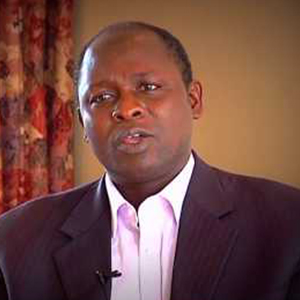Hemophilia, a rare genetic bleeding disorder that causes the blood to take a long time to clot because of a deficiency in one of several blood clotting factors, is the most well-known inherited bleeding disorder, which affects mostly males, Professor of Hematology and Blood Transfusion of the University of Lagos, Prof. Akanmu Sulaimon, disclosed.
Sulaimon revealed that there are three Hemophilia which are hemophilia A, B, and C and from all the Hemophilia, the most common one that kills or cripple children is the Hemophilia A.
The Hematologist said hemophilia gene, that is the gene responsible for the disorder, is located on the X chromosome, and since males inherit only one copy of the X chromosome, if that chromosome carries the mutated gene, then they will have the disease.
”Females have a second, usually normal, copy of the gene on their other X chromosome, so they are capable of passing on the disease to their son without experiencing its symptoms.
”People with hemophilia are at risk for excessive and recurrent bleeding from modest injuries, which have the potential to be life threatening. People with severe hemophilia often bleed spontaneously into their muscles or joints, or rarely into other critical closed spaces such as the intracranial space, where bleeding can be fatal,“ he further explained.
In the past, when knowledge was not sufficient, Sulaimon said doctors used to say that Hemophilia is a diseasse of the royalty, but that is not true. „We now know that the hemophilia gene is prevalent in all population in equal proportion. Africa population contributes about 18 per cent of the world‘s population that are living with hemophilia.
”We would expect that 18 per cent of all Hemophilia diagnosis in the world should come from Africa, but what we have in record is that only three per cent of all Hemophilia diagnosis in the world come from African countries like Egypt, Tunisia Algeria, morrocco, because they can diagnose the disease and are providing care. But in West African countries, including Nigeria, we are not diagnosing the disease. For instance, we are only diagnosing just one per cent of Nigerians who are living with hemophilia,“ he stated.
The Hematologist however called for more awareness on the condition, while driving home the need for innovation in access to hemophilia treatments.
To improve awareness of hemophilia in Africa, Sulaimon disclosed that World Federation of Hemophilia (WFH) is working closely in partnership with Hemophilia Treatment Centers (HTCs) in 29 African countries to share knowledge and build global awareness through information exchange, education, and training. „WFH also provides ∼24 million units of Clotting Factor Concentrates (CFCs) per year to patients in sub-Saharan Africa through a humanitarian aid program. Pfizer is a visionary partner of the World Federation of Hemophilia for World Hemophilia Day,” he added.
We’ve got the edge. Get real-time reports, breaking scoops, and exclusive angles delivered straight to your phone. Don’t settle for stale news. Join LEADERSHIP NEWS on WhatsApp for 24/7 updates →
Join Our WhatsApp Channel










